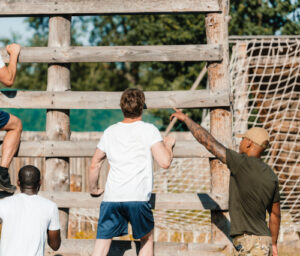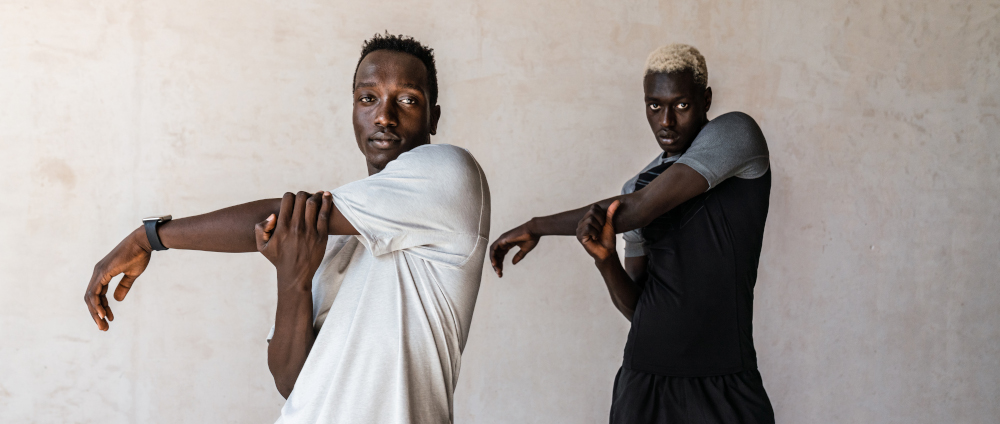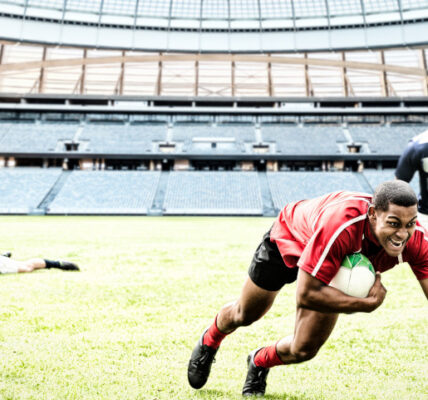The gate slams shut behind them with the same weight it always has. Cold metal. Sharp echo. For most inside, it’s the sound of time slowing down. But on the dusty exercise yards of a handful of South African correctional facilities, something unexpected is happening, whistles blowing, boots thudding against uneven turf, and men shouting in unison, not in anger, but in formation. It’s rugby. Real rugby. Not just a ball passed around during a break, but structured practice. Drills. Scrums. Strategy sessions led by ex-players, guards who know the game, and in some cases, even current pros giving back. For inmates across KwaZulu-Natal and beyond, the game is more than a distraction. It’s becoming a system, of self-discipline, hierarchy, identity, and for a few, redemption.
Ask anyone who’s served time, the days blend. Time blurs. There are fewer ways to mark it than people think. But rugby divides the week. Practice on Tuesdays and Thursdays. Conditioning on weekends. Matches every second month against other prisons, or, in rare cases, against outside teams brave enough to walk through the gates. It’s something to train for, to talk about, to build around. And in a world where so much is out of your control, rugby offers just enough structure to matter.
In Westville Correctional Centre, the program started unofficially. A guard with provincial experience brought in a deflated ball and some cones. No fanfare, no state funding. Just an idea that maybe, just maybe, this sport could quiet some of the noise. It worked better than anyone expected. Within months, factions that wouldn’t share a meal were lining up in the same backline. The field became neutral territory. The aggression had a new outlet, sanctioned, whistled, and bound by rules. Violence still happened, but less frequently on the field.
One of the players, a wiry thirty-something man from Empangeni serving twelve years for armed robbery, puts it plainly: “Before rugby, I was trying to fight every second guy in here. Now I save it for Saturdays. And I care more about keeping my position than proving a point.” The coaches, volunteers, wardens, ex-offenders, say the shift isn’t just physical. It’s mental. Inmates who commit to the team begin to stand differently. They track time. They plan. They even talk about “earning” things, like new boots, based on performance. That vocabulary, of earning, of improving, rarely exists in the average prison narrative.
There’s also something tribal about it. Each team develops its own colours, its own rituals. One squad writes their jersey numbers in charcoal before every match. Another belts out a Zulu war cry in the tunnel. These aren’t gimmicks. They’re anchors, a reminder that identity can be rebuilt, even in confinement. The matches themselves are rough. Always have been. Fields are uneven, gear is mismatched, sometimes improvised. But the game is played hard and clean. Guards watch with narrowed eyes, but they rarely intervene. There’s an understanding: this is sacred space. Break the code here, and you’re out, not just from the match, but from the one thing inside that feels real.
 Outside teams who’ve played against prison squads often speak of the unexpected professionalism. “They’re fit,” said one Durban club captain. “Disciplined. Organised. They move like a unit. You forget where you are until you look at the barbed wire.” And when they win, it’s not rowdy celebration, it’s quiet pride. When they lose, there’s no tantrum. Just a promise to show up harder next time.
Outside teams who’ve played against prison squads often speak of the unexpected professionalism. “They’re fit,” said one Durban club captain. “Disciplined. Organised. They move like a unit. You forget where you are until you look at the barbed wire.” And when they win, it’s not rowdy celebration, it’s quiet pride. When they lose, there’s no tantrum. Just a promise to show up harder next time.
Of course, rugby doesn’t save everyone. Some use it as a hustle, a way to curry favour, skip work details, or mask deeper issues. But for those who buy in, the effect is lasting. There are stories of men paroled early, who walked straight into club squads outside and earned spots. One even trialled for a provincial team. Most don’t make it that far. But they do carry the lessons with them, teamwork, control, knowing when to push and when to step back. Things they never learned in school, or at home, or in the lives that brought them to prison in the first place.
There’s talk of formalising the program, of bringing in funding, accredited coaches, maybe even placing talent scouts in the stands. Some argue that it’s a waste of resources, that prisons shouldn’t be grooming athletes. But others see it differently. They see the men who come out quieter, more focused, less likely to reoffend. They see rugby not as escape, but as education.
And maybe that’s the point. In a place built to punish, rugby offers a chance, however small, however fragile, to reform. Not just on paper, but in posture, presence, decision-making. Inmates who run clean lines and trust their teammates are often the same ones who, upon release, look both ways before crossing, show up on time for interviews, and walk past the old crowd without stopping.
The gate still slams shut at the end of every practice. That part doesn’t change. But for some, for a few, what happens between the white lines is enough to change what they do when that gate eventually opens again.




